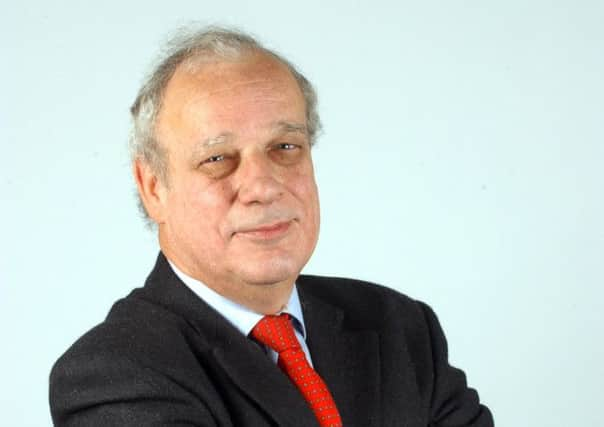Comment: Stability and intent would help Alliance


Gross founded the firm in 1970 and built it into the biggest bond fund in the world, with £1.2 trillion under management. He became the touchstone for millions of investors worldwide distrustful of ferocious plunges in equity markets and governance scandals. But relations within Pimco were said to be troubled.
His exit hit shares in Allianz, Pimco’s German parent, by around 4.5 per cent, while shares in the much smaller Janus Capital Group which he has joined jumped 20 per cent. This may well come to signify the turning of the tide for bond investment after a long era of inflation-beating returns.
Advertisement
Hide AdAdvertisement
Hide AdNearer home was the departure of Ilario di Bon, head of investments at the £2.5 billion Dundee-based Alliance Investment Trust. Replacing him is Peter Michaelis, the company’s head of sustainable investment, while Simon Clements, a portfolio manager in the socially responsible investment team, will assume day-to-day management of the trust’s equity portfolio.
This reshuffle might not trouble investors much but for three worrying features. The first is the difficulty Alliance is having in lifting its investment performance. The second is a continuing instability in its investment team, with 12 departures of senior people since 2006. And the third is the absence of a coherent investment philosophy and methodology. This, I suspect, is why shares in the trust continue to languish at a discount of 12.5 per cent to the value of net assets, while the average discount in the sector has fallen to 5 per cent.
Now that is quite a charge sheet, and it requires qualification. Its fund platform operation, Alliance Trust Savings, is one of the most price competitive in the market and has won many plaudits from investment advisers. I am myself a customer and would heartily recommend it.
As for the trust itself, its performance, while lacklustre, is by no means poor. It features in the second quartile of the global trust sector and it has outperformed this sector over periods of one, three and five years – albeit by small percentage amounts. However, as investment trust analyst Simon Elliott of Winterflood points out, its performance looks poor compared with Bankers Investment Trust, Majedie and most notably Scottish Mortgage, which has overtaken Alliance as Britain’s largest investment trust.
Few would take issue, either with the trust’s geographic diversification or with its focus on large successful companies with proven records. And it always takes time to turn round an investment tanker of this size. Was two years long enough?
As for its search for a coherent and distinctive investment approach, it is not for want of trying. Much was made of a new focus and attention to performance two years ago. Katherine Garrett-Cox, chief executive and head of investments, has said the changes will “allow us to promote an integrated and responsible investment strategy which we believe is a necessity, and no longer a choice, in today’s world”.
But what exactly does “an integrated and responsible investment strategy” mean? What is “sustainable investment” precisely? And what can we expect from a greater emphasis on environmental, social and corporate governance issues that existing legal and regulatory requirements – and sensitivity to the concerns of customers and markets – do not already compel?
A clear statement of Alliance’s investment approach and methodology, and how these directly relate to performance improvement, would not come amiss. Indeed, with “agitprop” US hedge fund Elliott Associates hovering over Garrett-Cox’s shoulder with a recently enlarged shareholding, “events” may compel one.
Taking notice at Tesco
Advertisement
Hide AdAdvertisement
Hide AdHAIL a new entrant to the pantheon of Donald Rumsfeld profound philosophical quotes – that of Tesco chairman Richard Broadbent on the £250 million overstatement of profits at Britain’s biggest supermarket chain: “Things are always unnoticed until they’re noticed.”
It has the elegant beauty of profound existential truth while being so blindingly obvious no-one bothered to remark on it.
But Mr Broadbent’s observation neatly sidestepped a core truth: isn’t it the job of boards of directors to notice them? In such matters of observation, Every Little Helps.